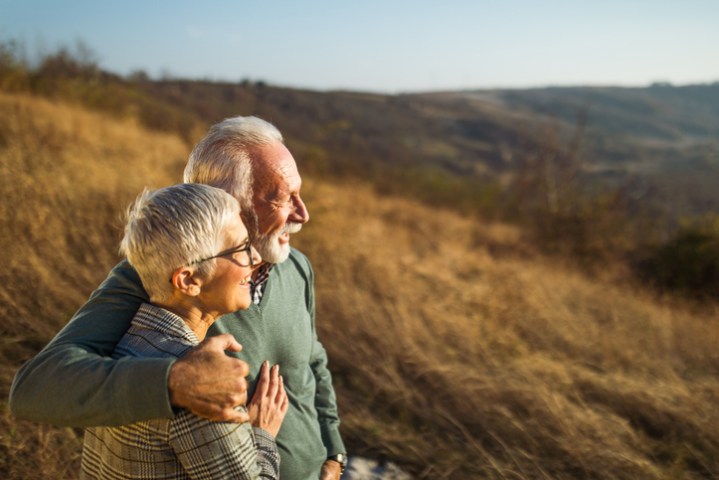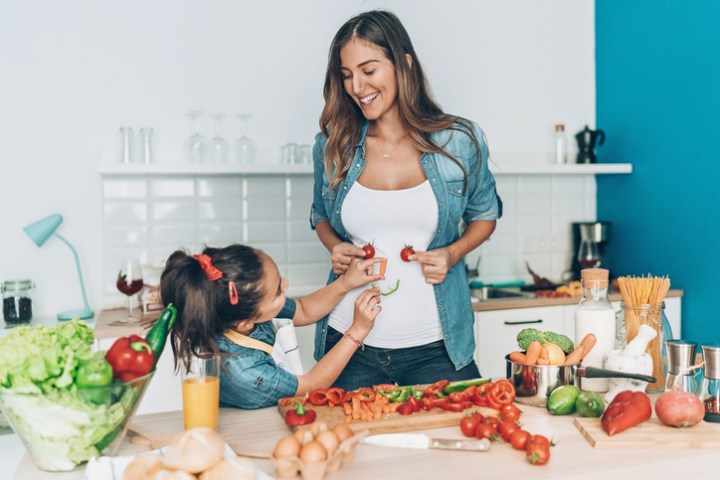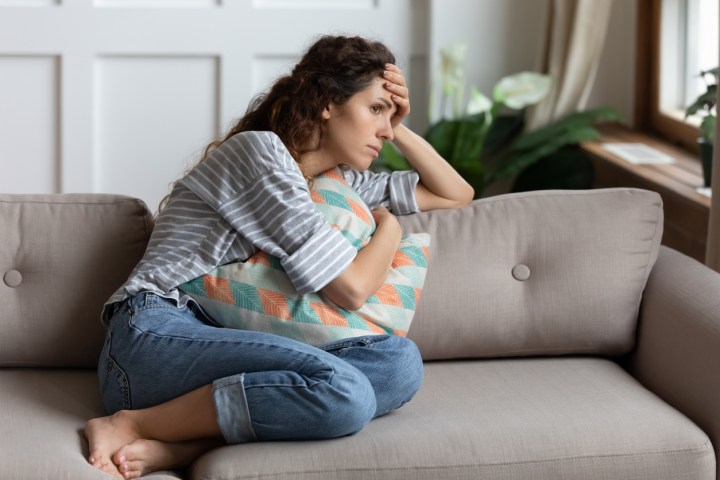How to Live a Longer, Healthier Life

FIVE TRICKS TO BOOST YOUR IMMUNE SYSTEM WHILE SOCIALLY ISOLATING
When coronavirus struck my region of France, and it hit it hard, my first instinct was to work on my immune system by eating tons of broccoli and running every day on my treadmill. Soon, however, these initial thoughts were replaced by a different set — that extra exercise and obsessive nutrition were not the way to go. After all, I should know better. After researching my book, Growing Young, which involved reading more than 600 scholarly papers and talking to dozens of scientists, I’m now convinced that my diet and exercise routines are good enough. Instead, what my immune system needed in these tough and stressful pandemic times was more kindness, more back rubs and more time spent on the couch with my husband, perhaps mixed with some Macarena dancing.
While healthy nutrition and physical activity are indeed important for health, there are things we all too often sacrifice that have an outsize impact on our centenarian potential. Friendships. Purpose in life. Empathy. Kindness. Volunteering. Science shows that these ‘soft’ health drivers are often more powerful than diet and exercise. Consider the numbers: studies show that building a strong support network of family and friends lowers mortality risk by about 45 per cent. Exercise, on the other hand, can lower that risk by 23 to 33 per cent. Eating six servings of fruit and veg per day can cut the danger of dying early by 26 per cent, while following the Mediterranean diet by 21 per cent. For volunteering, it’s 22 to 44 per cent.
On the flip side, loneliness is a true health-wrecker — which is quite ironic in times when we need to socially isolate to prevent the spread of COVID-19. People who are socially isolated not only have shorter telomeres and increased expression of many gene modules that promote cancer progression, they even have less efficient immune systems that respond poorly to viruses. Luckily, however, there are certain tricks we can do to boost our immune systems while socially distancing. Here are a few examples:
1. GET YOUR HUGS
Adults who report receiving more frequent hugs are buffered against the increased risk of upper respiratory infection. And yes, with social distancing measures we are not supposed to go around hugging people left and right, but if you do have someone you can embrace COVID-safely, then please do it often. In a similar way massages, holding hands and looking into each other’s eyes can also give you an extra dose of social hormones such as serotonin, oxytocin and endorphins. From a health and longevity perspective, that’s great news. Oxytocin can strengthen your immune response while serotonin can lower the risk of high blood pressure, Alzheimer’s disease and improve vascular tone.
2. DON’T WATCH HORROR MOVIES
Stress is bad for your immune system — even when it’s voluntarily chosen. When one group of students watched the 1974 version of The Texas Chain Saw Massacre, their leukocytes fired out tons of reactive oxygen species, suggesting that their immune systems got temporarily messed up by the stress. So for your pandemic entertainment try comedy instead — laughing releases oxytocin and endorphins, natural pain killers.
3. MAKE YOURSELF A HOT BEVERAGE
Many animals huddle together to keep warm and save energy. Humans, too, seem to have a hardwired connection between social relationships and physical warmth. The key lies in the insula, a small, pyramid-shaped structure deep within the cerebral cortex that is important both for how we perceive temperature and how we perceive others. That is why taking a hot shower or even holding a warm cup of tea makes us feel more connected to others and boosts feelings of belonging — which could potentially offset at least some side effects of COVID-related social isolation.
4. SING IN SYNCHRONY
While singing or dancing with others makes us feel connected, doing it in synchrony has even more powerful effects. Science reveals that synchrony causes release of endorphins and keeps our blood cortisol low, while making people feel more included and more bonded. Even tapping your fingers in rhythm with a partner does the trick, promoting warm feelings of togetherness. In times when we are particularly prone to loneliness, synchrony can be an extra help. You could try a session of singing together or maybe dance a Macarena. Doing it over Skype or Zoom may well be enough — in one study synchrony performed over virtual reality worked to boost social closeness, too.
5. CALL, DON’T TEXT
Another trick to improving your immune health while socially distancing is to pick up the phone and call — yes, the traditional way — instead of texting. Research shows that hearing the voice of your loved ones over the phone gives you an oxytocin boost that text messaging or commenting on social media cannot provide. Oxytocin, meanwhile, not only plays a role in your immune system, it can also reduce pain and inflammation, and even promote bone health.
'If you care about the length and quality of your life but can't stomach yet another diet or workout routine, this book is for you' - Adam Grant, New York Times bestselling author
'Finally, a lifestyle book that transcends diet and exercise for solutions for living longer' - Dan Buettner, National Geographic Fellow and New York Times bestselling author
A smart, research-driven case for why optimism, kindness and strong social networks will help us live to 100.
What to do to live long? From fountain-searching Ponce de Leon to pill-popping Silicon Valley techies humanity has been trying to pinpoint the answer for centuries, often fixating on all the wrong things: miracle diets, miracle foods, miracle supplements. We skip gluten and invest in exercise gadgets. We swallow vitamins. We obsess about BMI. While healthy nutrition and physical activity are indeed important for health, there are things we all too often sacrifice in favour of fad diets that have an outsize impact on our centenarian potential. Friendships. Purpose in life. Empathy. Kindness. Science shows that these 'soft' health drivers are often more powerful than diet and exercise.
Consider the numbers: studies show that building a strong support network of family and friends lowers mortality risk by about 45 per cent. Exercise, on the other hand, can lower that risk by 23 to 33 per cent. Eating six servings of fruit and veg per day can cut the danger of dying early by 26 per cent, while following the Mediterranean diet by 21 per cent. For volunteering, it's 22 to 44 per cent. Many more examples like this led Marta Zaraska to her ultimate conclusion: you should be contemplating your purpose in life, not the best fitness tracker to buy.
Humans are social animals. Over the course of our evolution we've developed intertwined systems that regulate our social lives on one hand and our physiology on the other, contributing to our centenarian potential. The amygdala and the insula in the brain, the social hormones oxytocin and serotonin, the vagus nerve, the HPA stress axis - these all link our bodies and our minds, contributing to our centenarian potential. We feel safe when we are surrounded by friendly others. The nervous system, the gastrointestinal system, the immune system all function properly when the tribe is there for us and when we are there for the tribe. We flourish as part of a group.
Marta Zaraska based Growing Young on hundreds of research papers and on interviews with dozens of leading scientists from fields as diverse as molecular biochemistry, cyber psychology, marketing and zoology. The book's research took her to rather unexpected places, too: catching wild mice in the woods of England, sipping super-smoothies at a longevity bootcamp in Portugal and arranging flowers with octogenarians in Japan.
In the end, all the studies, the interviews and the travels brought her to a simple conclusion: self-improvement, commitment to growing as a person, can also help us grow younger. To Michael Pollan's famous statement on health: 'Eat food, not too much, mostly plants,' she now adds: 'Be social, care for others, enjoy life.'








